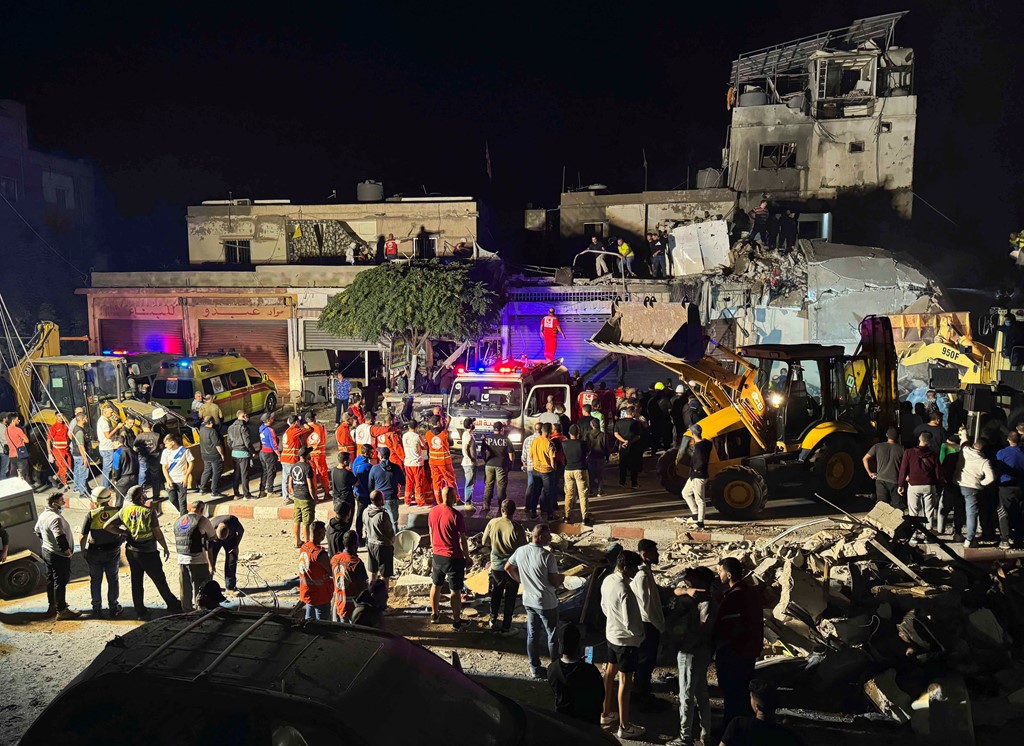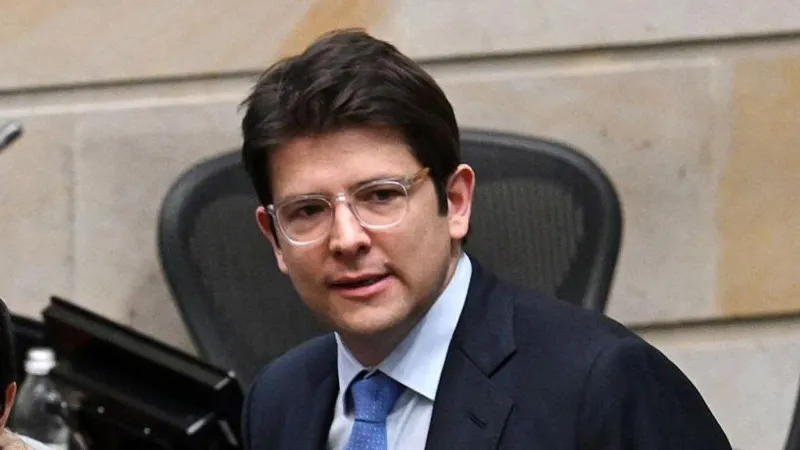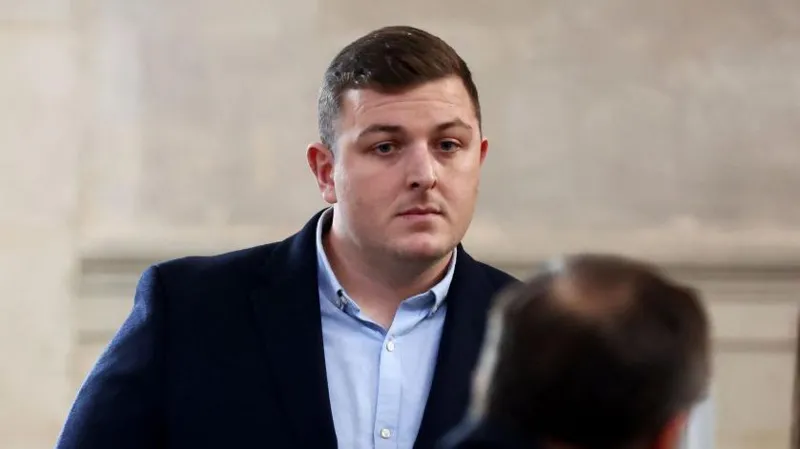Middle East latest: Israel sets curfew for Lebanese returning home - and gives just 30 minutes' warning
The Lebanese army has begun deploying to southern Lebanon as part of a ceasefire deal between Israel and Hezbollah. The deal, brokered by the US and France, came into force in the early hours of this morning, prompting traffic jams as thousands try to return home to southern Lebanon.

Hezbollah militants who approach Israeli border 'will be targeted'
The Israeli military will "target" any Hezbollah militants who approach the border area or its forces, the IDF chief of staff has said.
General Herzi Halevi said on X the fighting in Lebanon was "very decisive" but enforcing the agreement "will be even more decisive".
"Hezbollah elements who approach our forces, the border area, and the villages in the area we have defined - will be targeted," he said.
The official said Israel did not intend to wage months of war and remove residents from their homes without now returning them safely.
"We are preparing and getting ready for the possibility that this situation will not apply, we will re-analyse, we will take stricter steps, they will be stronger, and we are very determined to enforce the rules and create a completely different reality for the residents of the north" of Israel, he added.
Eleven killed in Israeli strike on schools turned shelters in Gaza
Away from the Lebanon-Israel conflict and the ceasefire deal, eleven people - including four children - have been killed in an Israeli airstrike on two schools-turned shelters in Gaza City, according to medical officials.
Nine of those killed were among hundreds of displaced people sheltering at Tabeen School, while the others were in al Hureyah School.
The IDF acknowledged it struck the Tabeen School overnight, saying senior Hamas fighter Mumin al Jabari had been operating from a room there, without providing evidence.
"Al Jabari directed and carried out terror attacks against IDF troops in the Gaza Strip and stored a large amount of weapons in the room in which he operated," the military claimed.
Israel sets curfew for those wanting to travel to southern Lebanon
Israel has imposed a curfew, starting in just a few minutes, forbidding Lebanese people from crossing into the south of the country.
The group's Arab spokesperson put out a statement just before 2.30pm UK time.
"We inform you that starting from 5pm [3pm UK time] until tomorrow morning at 7am [5am UK time] it is absolutely forbidden to travel south of the Litani river," Avichay Adraee said.
The warning on X came just 31 minutes before the curfew was put into place.
"Whoever is north of the Litani river is prohibited from moving south. Whoever is south of the Litani river must remain where he is," the statement added.
"We remind you that the IDF is still deployed in its positions in southern Lebanon in accordance with the terms of the ceasefire agreement, and our forces will deal firmly with any movement that violates this agreement."
IDF questions four people in southern Lebanon
The Israel Defence Forces says it has "questioned" four suspects who approached units in southern Lebanon after the ceasefire was implemented.
"Earlier today, four suspects approached IDF soldiers stationed in southern Lebanon. The soldiers questioned the suspects in the field."
The IDF has already noted two occasions since the ceasefire when its troops fired upon vehicles and people in the area.
It's not clear who these suspects are, or what happened to them, but there have been widespread reports of people trying to return to their homes in the south of the country.
The IDF has warned that they should wait until Israeli forces have withdrawn from certain areas (see 6.12am post for more).
The complete withdrawal of Israeli forces could take as long as 60 days.
Lebanese army deploying to southern Lebanon
The Lebanese army says it has begun deploying in the south of Lebanon.
"The army has begun reinforcing its deployment in the South Litani Sector and extending state authority in coordination with the United Nations Interim Force in Lebanon (UNIFIL)," it said, referring to the area south of the Litani river.
"The concerned military units are conducting a relocation process from several areas to the South Litani Sector, where they will take up positions at their designated sites."
It comes as Israeli forces and Hezbollah fighters begin a phased withdrawal from the area - which could take up to 60 days.
The plan is for Lebanese troops and UN peacekeepers to move in and secure areas left by both sides.
The army also shared several images of units on the move...
Traffic backs up as Lebanese return to homes in south
This video shows traffic backing up in southern Lebanon as thousands attempt to return to their homes.
They're flocking to their homes hours after a ceasefire agreement came into force between Israel and Hezbollah.
But hours after the ceasefire began at 4am local time, Israel Defence Forces spokesperson Avichay Adraee urged people not to return to their homes in southern Lebanon, saying Israeli forces were still deployed there.
Hezbollah reserves right to defend itself, says militant group official
Hezbollah will retain the right to defend itself if Israel attacks, an official for the militant group has said.
Hassan Fadlallah made the comment after being asked by reporters for his reaction to Israel's statement about the recent ceasefire deal.
Benjamin Netanyahu said yesterday that Israel retained military freedom of action and would strike the group if it violated the terms of the agreement, with a government spokesman vowing today the country would respond "forcefully" if the ceasefire is broken.
The US and France-brokered deal has called for an initial two-month halt to fighting and requires Hezbollah to end its armed presence in southern Lebanon.
Israeli troops have also been required to return to their side of the border, while thousands of additional Lebanese troops and UN peacekeepers will be deployed in the south.
Destruction in Beirut's southern suburbs
With Israeli strikes stopping after the ceasefire agreement, the extent of the destruction in Beirut has been laid bare.
The IDF has hit targets across Lebanon during months of war, with much of its firepower directed at the Dahieh area of the capital - a Hezbollah stronghold - and surrounding suburbs in the south of Beirut.
France appears to suggest Netanyahu has immunity from ICC arrest warrant
We've just received a statement from the French foreign ministry that implies Benjamin Netanyahu has immunity from the International Criminal Court arrest warrant in his name.
The French appear to base their argument on the fact that Israel is not a party to the court.
"France will respect its international obligations, it being understood that the Rome Statute requires full cooperation with the International Criminal Court (ICC) and also provides that a state cannot be required to act in a manner inconsistent with its obligations under international law with respect to the immunities of states not party to the ICC," the ministry said in a statement.
"Such immunities apply to Prime Minister Netanyahu and the other ministers concerned and must be taken into account should the ICC request their arrest and surrender."
Arrest warrants were issued for Netanyahu and his former defence secretary Yoav Gallant last Friday.
The warrants against the senior Israeli figures are for alleged war crimes and crimes against humanity related to the war in Gaza.
US to launch renewed push for Gaza ceasefire
The US will start a renewed push for a Gaza ceasefire today, the country's national security adviser has said.
Speaking to MSNBC, Jake Sullivan said Joe Biden "intends to begin that work today by having his envoys engage with Turkey, Qatar, Egypt and other actors in the region" - a day after the president announced a separate ceasefire between Israel and Hezbollah.
IDF 'hit dozens of Hezbollah targets' in huge strikes before ceasefire
As we reported yesterday, Israel pounded Lebanon right up to the ceasefire coming into place at 4am local time this morning.
The IDF has now issued a statement on the strikes.
The military said it hit "dozens of Hezbollah command centres, launchers, weapons storage facilities and terrorist infrastructure sites in Beirut, Tyre and Nabatieh.
"The targets included a military structure used by Hezbollah's coast-to-sea missile unit in Beirut."
It added: "Prior to the ceasefire, the IAF also conducted intelligence-based strikes on several smuggling routes between Syria and Lebanon, which were used by Hezbollah to smuggle weaponry."
The idea behind those strikes was to make it more difficult for Hezbollah to potentially rearm.
Haven't we seen this all before?
For the first time in more than a year, there is a peace of sorts on the Israel-Lebanon border.
But there are still huge questions about whether it can hold and what it means more broadly for the region.
The ceasefire is in its infancy, coming into effect at 4am local time.
On the streets of Beirut there was celebratory gunfire as the deal was welcomed - and there is reason for optimism that it will succeed.
Over the past few months Lebanon's militant group Hezbollah has been severely degraded - much of its arsenal has been destroyed and its leadership, including Hassan Nasrallah, killed.
Hezbollah had miscalculated it would be able to fight a limited war against Israel in solidarity with Hamas, the militant group ruling Gaza, without suffering major consequences.
For Hezbollah, the ceasefire is now a chance to lick its wounds and live another day - to carry on fighting would potentially put its survival in jeopardy.
And Israel's prime minister, Benjamin Netanyahu, has made clear the ceasefire allows his nation's exhausted forces to recover and rearm, with the country also now able to focus on the threat from Iran.
But how the ceasefire is implemented still remains a vexatious issue.
Many Israelis from the evacuated northern communities feel they've seen this all before.
When the 2006 war ended, Hezbollah - which like Hamas is backed by Iran - simply lodged itself back on the border and became more powerful.
This time there are differences - while the framework of UN resolution 1701 remains, there'll also be an international monitoring committee to check for violations.
Israel has also made clear it will respond with formidable military aggression if there are breaches of the agreement.
The hope is the peace in the north will eventually usher in a broader agreement as the fighting in Gaza is not part of the ceasefire, meaning at least for the moment, the grim cycle of violence in the besieged enclave continues.
'Most cruel phase in our history'
Lebanon's caretaker prime minister has called for unity as a ceasefire breaks up what he described as the "most cruel phase in Lebanese history".
Najib Mikati also called on Israel to stick to its commitments and withdraw from the south of Lebanon.
Israeli troops will withdraw over the next 60 days, according to the ceasefire framework.
More fire from Israeli forces in southern Lebanon
Israel, for the second time since the ceasefire came into force, has said its troops have fired shots in southern Lebanon.
"Over the past few hours, the IDF identified suspects in southern Lebanon and fired toward them," the IDF said.
"The IDF remains in southern Lebanon and will actively enforce every violation of the ceasefire agreement."
It's not clear who the suspects are, but there have been widespread reports of people trying to return to their homes in the south of the country.
The IDF has warned, however, that they should wait until Israeli forces have withdrawn from certain areas (see 6.12am post for more).
The complete withdrawal of Israeli forces could take as long as 60 days.
-SKY NEWS







